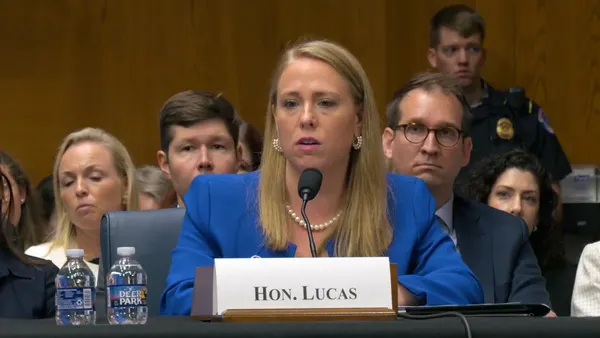Dive Brief:
- Honeywell International, Inc., allegedly violated the Age Discrimination in Employment Act when it illegally subjected a U.S. citizen working in Shanghai to China’s mandatory retirement age and fired her solely because she turned 55, the employee claims in a July 30 lawsuit.
- Per the complaint in Li v. Honeywell International, Inc., the employee served as corporate counsel to the firm and as general counsel to Honeywell’s regional aerospace division at its Shanghai subsidiary. She alleged that under the ADEA’s “foreign laws” exception, China’s mandatory retirement law did not dictate her termination because, among other reasons, China did not make its retirement age mandatory for foreign workers, particularly in Shanghai.
- The employee also alleged that Honeywell violated the ADEA when it denied her executive severance package, purportedly because her turning 55 gave it “cause” to terminate her. But nothing in China’s retirement law mandated that she be denied her severance because she reached 55, the complaint alleged, and denying her severance violated the ADEA, which “prohibits discrimination in the terms and conditions of employment,” the lawsuit said.
Dive Insight:
For businesses employing U.S. citizens abroad, the Honeywell lawsuit is a reminder they need to stay on top of the complicated interplay between foreign and U.S. employment laws.
The issue here focused on whether China’s mandatory retirement law conflicted with the ADEA. The employee alleged there was no conflict because the law didn’t apply to foreign workers and that Honeywell relied on an interpretation of the law that was “blatantly wrong” so it could fire her because of her age.
HR professionals are familiar with the ADEA’s general prohibition on discrimination against employees who are 40 and older on the basis of their age.
Pertinent to the lawsuit, the ADEA defines “employee” to include “any individual who is a citizen of the United States employed by an employer in a workplace in a foreign country.”
However, under the foreign laws exception, it’s not unlawful under the ADEA to take otherwise prohibited action “where such practices involve an employee in a workplace in a foreign country, and compliance ... would cause [the] employer ... to violate the laws of the country in which such workplace is located,” EEOC guidance states.
In the Honeywell lawsuit, the employee alleged that although her employment contract had been in effect for several years, she was informed for the first time, nine days before her 55th birthday and two months before the contract ended, that she would be terminated when she turned 55.
She alleged Honeywell told her she was being terminated based on clauses in the contract mentioning that Chinese law applied to retirement age and related matters and an employee could be subject to early termination if they reached retirement age as regulated by China’s law.
The complaint asserted that Honeywell’s purported reliance on China’s mandated retirement age to terminate the employee violated the ADEA because, in addition to the mandate allegedly not applying to foreign workers, the employee’s work permit wasn’t subject to age restrictions and had an expiration date that matched her contract.
The employee also alleged that shortly before she was terminated, she was told her leadership role would be significantly expanded to cover countries outside of China where business practices were irregular, demonstrating that her performance was not at issue and that instead, Honeywell considered her to be an outstanding executive.
She alleged additionally that Honeywell had viable alternatives to firing her, such as reassigning her to another country, or offering her a multi-year contractor position that matched, or closely matched, her financial package.













